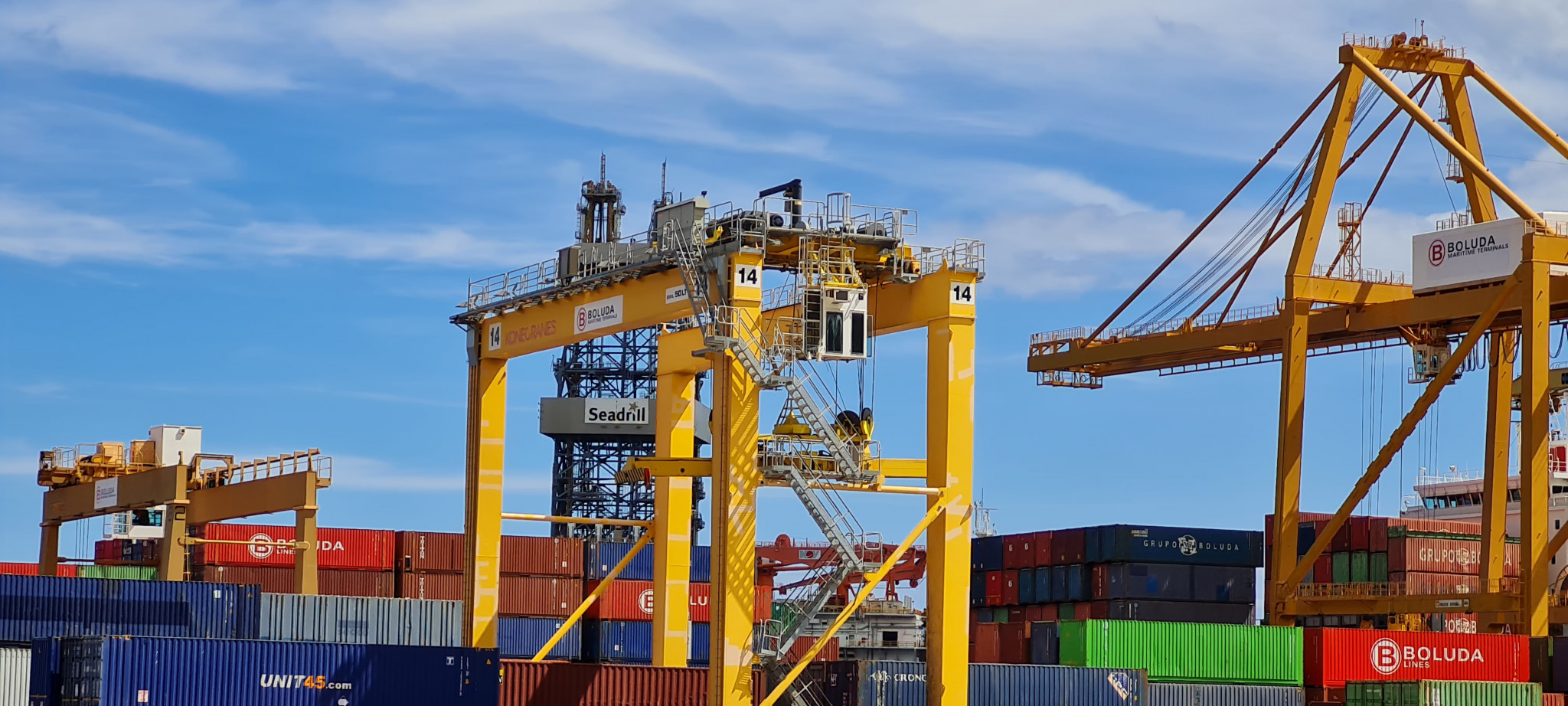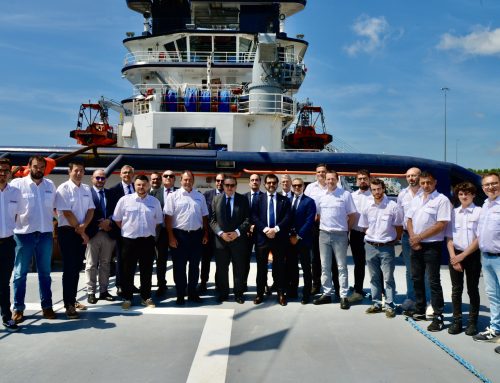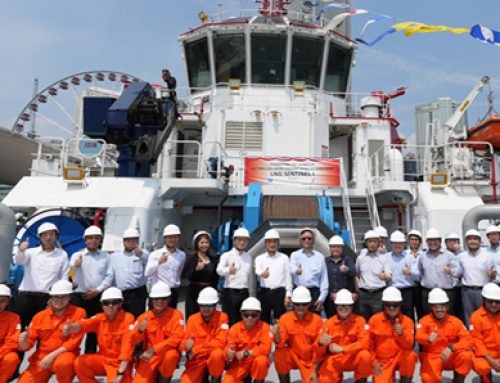Around twenty public and private entities will analyse the viability of the DISA and Enagás initiative, which opts for renewable hydrogen to contribute to decarbonisation
In tandem with a variety of public entities and leading private companies in its sector, Boluda Corporación Marítima supports the viability of the Clúster Hub Hidrógeno Renovable Canarias project promoted by the DISA Group and Enagás, two companies that have joined forces to promote production, distribution and commercialization of green hydrogen to help progressively decarbonise the archipelago.
In this regard, Boluda Maritime Terminals Tenerife will participate with Paceco Momentum in a project included in the PORTS 4.0 Fund to use disruptive technologies with hydrogen and high-performance PEM fuel cells to power transtainer (RTG) cranes. The goal is to eliminate CO2, GHG gas and polluting particle emissions in terminals, thus helping to improve life quality in port environments.
The green hydrogen hub cluster requires an investment of 100 million euros in its first stage, potentially reaching 1,000 million by 2030, depending on its growth as a clean energy alternative. This initiative aims to secure public co-funding with Next Generation European funds and the proposal has been submitted to the Canary Islands government. The project would create approximately 200 new jobs during the first implementation and start-up phase.
The infrastructure planned for this first phase would have the capacity to produce about 1,000 tons of green hydrogen per year, which would reduce CO2 emissions by 10,400 tons, with an absorption capacity equivalent to a forest the size of 600 soccer fields.
Green hydrogen
Hydrogen is the most abundant molecule in the universe, and is found on our planet mixed with other elements such as water. This energy vector can help reduce greenhouse gas emissions and favours decarbonisation across multiple sectors.
For hydrogen to be green it must be produced from 100% renewable energy sources such as solar or wind, used to separate water into hydrogen and oxygen., Designed for the Canary Islands by DISA and Enagás, the project uses seawater and renewable energy is also sourced to power the desalination process. The project foresees the production of green hydrogen in two plants, located in each of the capital islands.
Digitalisation
The project is aligned with criteria of a new sustainable industry concept known as Industry 4.0., a revolution that it is hoped will spread throughout the European Union. The initiative will improve guarantees of sustainable traceability across the entire production process, from the origin of raw materials, through each stage of transformation and exchange, to end client use of the product (in this case, renewable hydrogen). To achieve this, the Cluster-Hub will use digital tools such as IoT and Blockchain right from the start to create a system of Guarantee of Origin (GO) certificates for the hydrogen produced.




